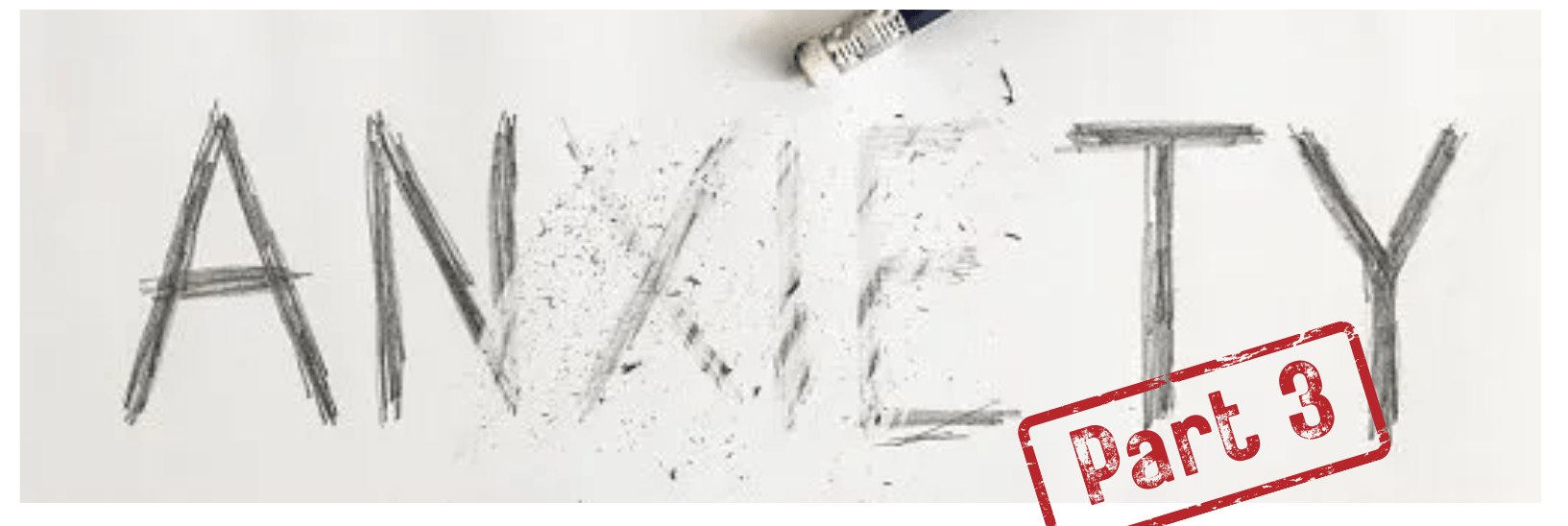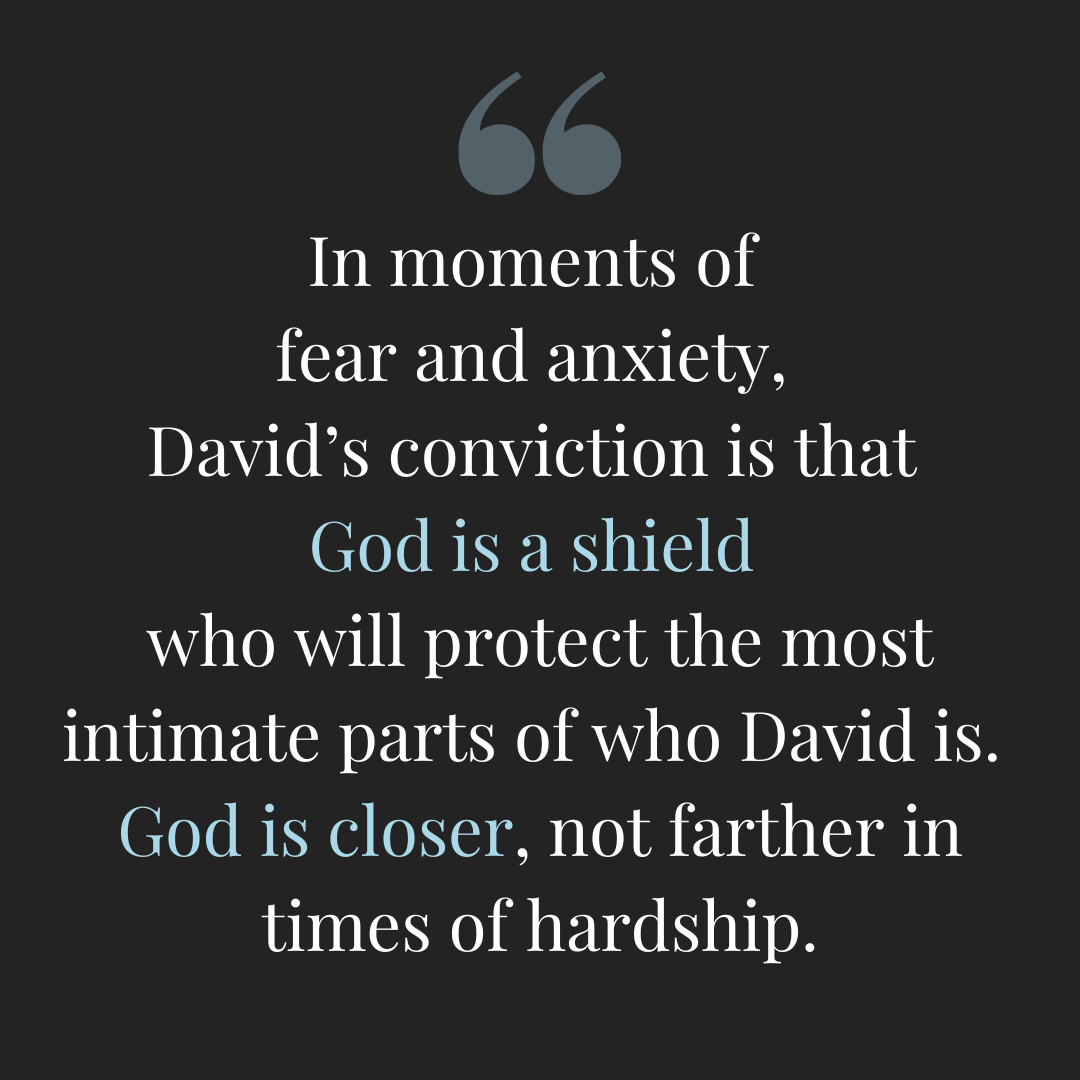Reread Psalm 3. Even if you read it last week. Repetition is a good thing.
How does the focus change in verses 3-6?
(hint: I made it bold.)
3 But you, Lord, are a shield around me,
my glory, the One who lifts my head high.
4 I call out to the Lord,
and he answers me from his holy mountain.
5 I lie down and sleep;
I wake again, because the Lord sustains me.
6 I will not fear though tens of thousands
assail me on every side.
David started by focusing on the source of his fear and anxiety, but he doesn’t stay there. He shifts his attention to God’s character. And as David thinks about who God is he uses three metaphors to describe him..
Pro tip: Whenever Bible authors use metaphors. It’s worthwhile to think about them. So we’re going to break them down.
Metaphor 1: The Lord is a shield.
What comes to mind when you think of a shield?
I bet the first thing that came to mind was protection, and that’s true. But, that has some pretty big implications.
Why do you use a shield?
Yeah, I know, repetitive. It is a tool of safety and protection. I just said that. But what if you saw me just walking around with a shield? You might guess a couple of things about me.
That I expect something terrible is going to happen.
OR I am going to a renaissance fair, but just focus on the first one.
Here’s why I think this is important. Shields don’t stop bad things from happening, they keep you from being completely destroyed when the bad things happen. Usually it is times of hardship and anxiety that we think that God has abandoned us, and the logic is simple in our heads, “If God loved me he wouldn’t allow bad things to happen to me.”
But David has a different conviction.
He knows that even when life is crumbling around him, God has not abandoned him. If anything it is the opposite. In moments of fear and anxiety, David’s conviction is that God is a shield who will protect the most intimate parts of who David is. God is closer, not farther in times of hardship.
The same is true for us. Even in our darkest times and most painful times, God is going to protect the most important pieces of who we are.
This builds into the next metaphor that David uses,
Metaphor 2: The Lord is “my glory.”
Glory is one of those religious words that has become pretty vague. When you think about “glory” you might think about having fame, honor, or maybe something shiny. Glorious things can be all of those, but the meaning of the Hebrew word (kavod) just means something important.
So to say that “God is my glory” means that he is your importance and worth. He is the one who gives you value. And from David’s life (2 Sam 11-18) it’s clear that other things had become David’s “kavod.” That’s why he needs to say it right now!
Things like his power, his position, his image as the father of a large family, and his kingdom had given him a sense of “glory” and identity that led him to take advantage of others and ignore God. But now that these things are gone, and as he prays through his fears, he can see that he has misplaced his glory.
It’s this misplaced glory that produces David’s anxiety. With all of his importance in his role of king, successful father, nation builder, etc. what happened when all of that was lost? A crisis of identity. A crisis of self worth. Anxiety and fear.
But now that he has been stripped of all of that, he realizes that God is the one who intimately protects who he truly is (his shield) and the one who truly gives him worth (glory). All he needs to get through is God’s favor and forgiveness.
Which leads into the last metaphor!!!


